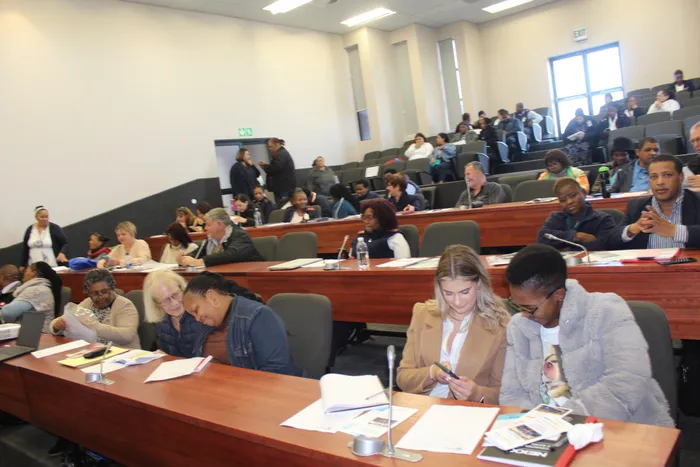Call for residents to protect service organisations


Health managers have called on residents to protect health care workers because of the vital services they provide.
The Khayelitsha Health and Eastern substructure management introduced non-profit organisations (NPOs) to key community stakeholders last week at the Khayelitsha Training centre hall.
James Kruger, the director for Khayelitsha Eastern substructure, said despite delivering services to the community, health care workers were under constant threat from crime.
“NPOs deliver services in our space and their most intermediate care; facility care and community-based services. They deliver a service package. Crime is everywhere and it is difficult even for us as managers in health facilities. Everyday we struggle with our own staff getting to facilities being mugged and robbed. It is not different to any member of the community. They need to take care when they go out to our population. And yet they do deliver important services,” he said.
Mr Kruger said NPOs are an extension of the health care service and do home-based care, referral of clients to their homes and chronic medication dispensing. They also promote wellness and providing HIV testing and reproductive health resources.
“We would ask the community to support these NPOs who provide services directly to them, especially the community care workers. They deliver a fundamental service. They also provide screening services as well as preventative services for diseases to keep the people who are well and not sick out of the facilities. It's a fundamental service which should be adopted and endorsed by the community to ensure that we reduce long queues to the facilities,” he said.
Neshaan Peton, deputy director of the Department of Health’s comprehensive health programme for the Khayelitsha Eastern substructure, said the meeting was also to introduce the 18 NPOS to each other.
“We are meeting all the NPOs that we sign service delivery with. The NPOs are going to be introduced to each other. We want to create signage and we want to create links for the NGOs to work closely with each other and also to understand their geographical boundaries. These NGOs are critical to Khayelitsha in delivering service, visiting homes, giving health education, reproductive healthcare services, they also look at the mental healthcare, they have daycare centres that have disabled children or are physically or intellectually disabled. So they are critical role players in terms of services delivery,” she said.

